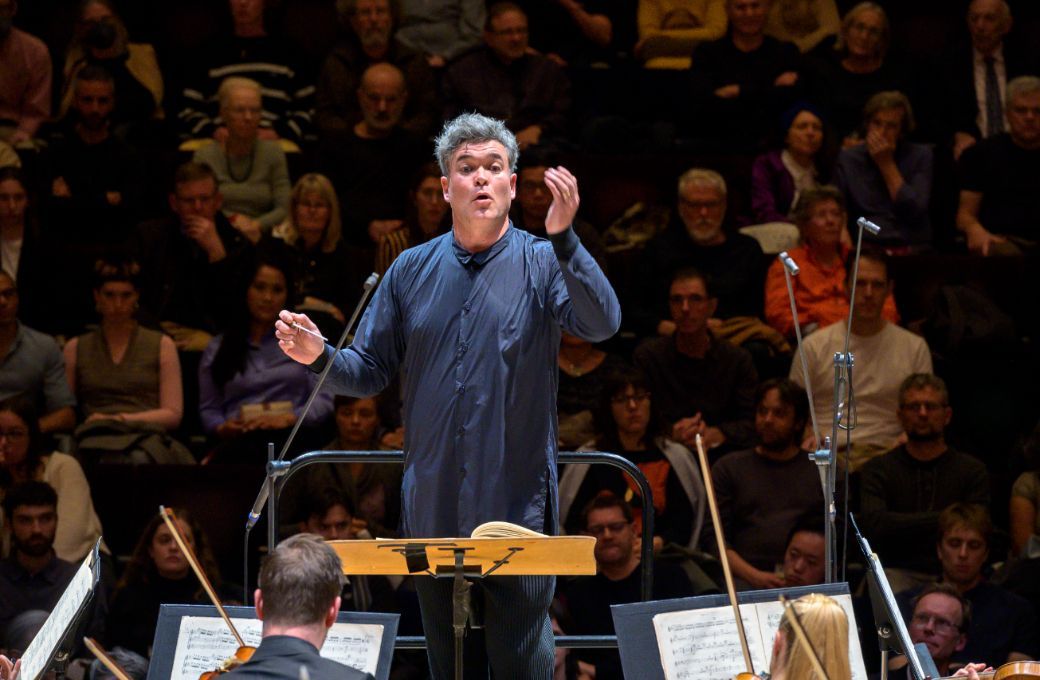Once a bastion of modernism and musical challenge, the BBC Symphony Orchestra has adopted a safer middle course in recent years. This Sunday-night concert struck out (and stuck out) with a spirit of adventure that bore the mark of the conductor originally planned to lead it, Ilan Volkov. With the Israeli conductor indisposed, it says a good deal for the capabilities of Ryan Wigglesworth that he could take on the engagement at short notice, leave the programme unchanged, and conduct it with an authority that did full justice to each of the four works involved.

The UK premiere of Ison II by Stefan Niculescu could be counted a significant event in its own right. The Romanian composer wrote it in 1975, but he – and his Romanian colleagues – have never achieved the kind of international renown won by their contemporaries in other east-European countries such as Ligeti and Lutoslawski. Niculescu’s voice is no less bold and personal than theirs, and no less determined in its way by a resistance to authoritarian ideology.
A reference or recourse to religion could be counted rebellious in those days, and Ison II takes its name and its form from Byzantine liturgy. Tendrils of melody on flutes rise and entwine like incense. Below them, low brass intone a pedal note (‘Ison’), before vestigial echoes of old hymns sound above prayer-bell percussion. A clear-cut division of episodes evokes the Christian triduum which passes from the stillness of Good Friday and slowly generates light, and Brucknerian momentum, towards the resurrection dawn of Easter Sunday. There is a burst of thunder, then bells.
The imaginary setting could be that of Szymanowski’s King Roger, and the Barbican is no one’s idea of a Byzantine cathedral, but the BBCSO brass moulded their swelling and receding lines with a warmth and nobility that resisted tired associations of dissonance with angst or aggression. The same could be said for the programme as a whole. Erik Bosgraaf was the agile soloist in Origami Songs, a suite of five brief sketches for recorder and ensemble by Anna Meredith. Birds, fish and kites are each sharply drawn, pairing the recorder in turn with an oboe, harpsichord or trombone, and ingeniously calling to mind not just Japanese paper-folds but other worlds where the recorder might find itself at home such as Arabia, the Italian Baroque and the English country house as filtered through the ear and eye of Nyman and Greenaway.
Beautifully paced and controlled by Wigglesworth, the slow, concentrated accumulation of sound and energy in Arvo Pärt’s Perpetuum mobile picked up where Niculescu left off, and prepared the ear for the Rite of Spring. Whoever is nominally in charge, the BBCSO has this score in its bones. The experience is akin to hearing the Vienna Philharmonic in Strauss or the Czech Phil in Dvořák. On this occasion, Wigglesworth still drew out unusual balances of texture at the climax of the first part, before building the more monumental second part with assurance towards a thrillingly savage and grease-painted Danse sacrale.


